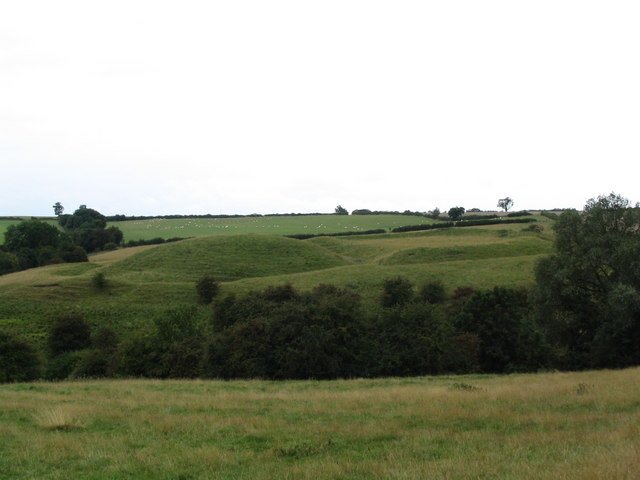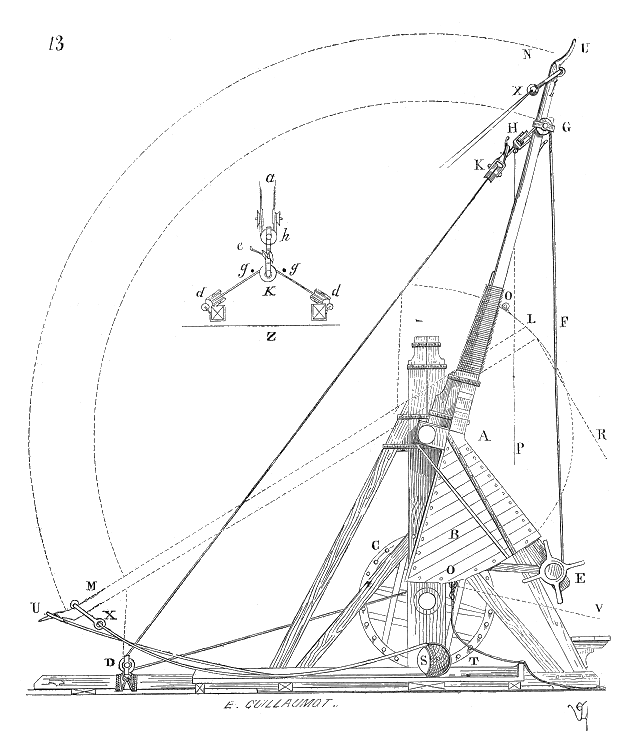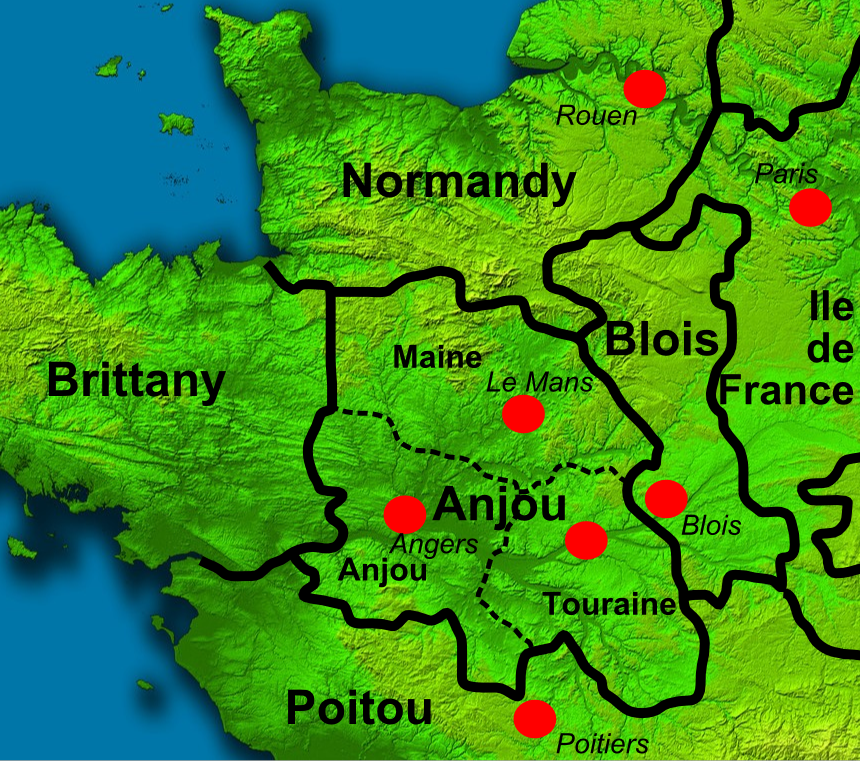|
Faringdon Castle
Faringdon Castle was a Norman castle standing just outside the market town of Faringdon in the English county of Berkshire (administratively now Oxfordshire), some 17 km to the north-east of Swindon (). This castle was built, on a site now known as Folly Hill, by Robert, Earl of Gloucester in 1144 in support of Matilda in the Anarchy. The ''Gesta Stephani'', a contemporary chronicle, recorded the founding of the castle and the earl's activities, noting that it was "strongly fortified by a rampart and stockade, and putting in it a garrison that was the flower of his whole army he valorously restrained the wonted attacks from the king's soldiers, who had been coming out of Oxford and other castles round about to harass his own side". A few weeks after Faringdon Castle was built it was besieged by Stephen and after four days the castellan, Brian De Soulis, surrendered. The castle was destroyed within a year or two. In the 1930s a 104 ft brick tower known as Faringdon Fol ... [...More Info...] [...Related Items...] OR: [Wikipedia] [Google] [Baidu] |
Norman Architecture
The term Norman architecture is used to categorise styles of Romanesque architecture developed by the Normans in the various lands under their dominion or influence in the 11th and 12th centuries. In particular the term is traditionally used for English Romanesque architecture. The Normans introduced large numbers of castles and fortifications including Norman keeps, and at the same time monasteries, abbeys, churches and cathedrals, in a style characterised by the usual Romanesque rounded arches (particularly over windows and doorways) and especially massive proportions compared to other regional variations of the style. Origins These Romanesque styles originated in Normandy and became widespread in northwestern Europe, particularly in England, which contributed considerable development and where the largest number of examples survived. At about the same time, a Norman dynasty that ruled in Sicily produced a distinctive variation–incorporating Byzantine and Saracen influen ... [...More Info...] [...Related Items...] OR: [Wikipedia] [Google] [Baidu] |
Siege
A siege is a military blockade of a city, or fortress, with the intent of conquering by attrition warfare, attrition, or a well-prepared assault. This derives from la, sedere, lit=to sit. Siege warfare is a form of constant, low-intensity conflict characterized by one party holding a strong, static, defensive position. Consequently, an opportunity for negotiation between combatants is common, as proximity and fluctuating advantage can encourage diplomacy. The art of conducting and resisting sieges is called siege warfare, siegecraft, or poliorcetics. A siege occurs when an attacker encounters a city or fortress that cannot be easily taken by a quick assault, and which refuses to Surrender (military), surrender. Sieges involve surrounding the target to block the provision of supplies and the reinforcement or escape of troops (a tactic known as "Investment (military), investment"). This is typically coupled with attempts to reduce the fortifications by means of siege engines, ar ... [...More Info...] [...Related Items...] OR: [Wikipedia] [Google] [Baidu] |
List Of Castles In England
This list of castles in England is not a list of every building and site that has "castle" as part of its name, nor does it list only buildings that conform to a strict definition of a castle as a medieval fortified residence. It is not a list of every castle ever built in England, many of which have vanished without trace, but is primarily a list of buildings and remains that have survived. In almost every case the buildings that survive are either ruined, or have been altered over the centuries. For several reasons, whether a given site is that of a medieval castle has not been taken to be a sufficient criterion for determining whether or not that site should be included in the list. Castles that have vanished or whose remains are barely visible are not listed, except for some important or well-known buildings and sites. Fortifications from before the medieval period are not listed, nor are architectural follies. In other respects it is difficult to identify clear and cons ... [...More Info...] [...Related Items...] OR: [Wikipedia] [Google] [Baidu] |
Castles In Great Britain And Ireland
Castles have played an important military, economic and social role in Great Britain and Ireland since their introduction following the Norman invasion of England in 1066. Although a small number of castles had been built in England in the 1050s, the Normans began to build motte and bailey and ringwork castles in large numbers to control their newly occupied territories in England and the Welsh Marches. During the 12th century the Normans began to build more castles in stone – with characteristic square keep – that played both military and political roles. Royal castles were used to control key towns and the economically important forests, while baronial castles were used by the Norman lords to control their widespread estates. David I invited Anglo-Norman lords into Scotland in the early 12th century to help him colonise and control areas of his kingdom such as Galloway; the new lords brought castle technologies with them and wooden castles began to be established over ... [...More Info...] [...Related Items...] OR: [Wikipedia] [Google] [Baidu] |
Brother Cadfael's Penance
''Brother Cadfael's Penance'' is a medieval mystery novel set in the autumn of 1145 by Ellis Peters. It is the last novel in the Cadfael Chronicles, first published in 1994. When a rebellion arises in the south, Cadfael leaves the Shrewsbury Abbey cloister to save two who are dear to him. One is the son he has not yet acknowledged, held prisoner by a disillusioned knight. The novel received strongly positive reviews when it was published, and some noted the increasing sales of books in the series. It was "moving and suspenseful", "one of Cadfael's most moving adventures". Introduction to plot After eight years, The Anarchy moves into stalemate, as fighting continues in the Thames valley. In the Holy Land, Edessa has fallen, giving rise to a strong desire among bishops in England to end the civil war and redirect fighting men towards another Crusade to keep Jerusalem safe. In the late summer of 1145, the younger son of Robert of Gloucester, Philip FitzRobert, switches side ... [...More Info...] [...Related Items...] OR: [Wikipedia] [Google] [Baidu] |
Ellis Peters
Edith Mary Pargeter (28 September 1913 – 14 October 1995), also known by her ''nom de plume'' Ellis Peters, was an English author of works in many categories, especially history and historical fiction, and was also honoured for her translations of Czech classics. She is probably best known for her murder mysteries, both historical and modern, and especially for her medieval detective series The Cadfael Chronicles. Personal Pargeter was born in the village of Horsehay (Shropshire, England), daughter of Edmund Valentine Pargeter (known as Ted) and his wife Edith ''nee'' Hordley. Her father was a clerk at the local Horsehay Company ironworks. She later moved with her parents to Dawley where she was educated at Dawley Church of England School and the old Coalbrookdale High School for Girls.Article by Toby Neal, part of series on West Midlands worthies. She had Welsh ancestry, and many of her short stories and books (both fiction and non-fiction) are set in Wales and its borderla ... [...More Info...] [...Related Items...] OR: [Wikipedia] [Google] [Baidu] |
Gerald Hugh Tyrwhitt-Wilson, 14th Baron Berners
Gerald Hugh Tyrwhitt-Wilson, 14th Baron Berners (18 September 188319 April 1950), also known as Gerald Tyrwhitt, was a British composer, novelist, painter, and aesthete. He was also known as Lord Berners. Biography Early life and education Berners was born in Apley Hall, Stockton, Shropshire, in 1883, as Gerald Hugh Tyrwhitt, son of The Honorable Hugh Tyrwhitt (1856–1907) and his wife Julia (1861–1931), daughter of William Orme Foster, Apley's owner. His father, a Royal Navy officer, was rarely home. He was brought up by a grandmother who was extremely religious and self-righteous, and a mother who had little intellect and many prejudices. His mother, who was the daughter of a rich ironmaster, and who with a strong interest in fox hunting, ignored his musical interests and instead focused on developing his masculinity, a trait Berners found to be inherently unnatural. Berners later wrote, "My father was worldly, cynical, intolerant of any kind of inferiority, reserved ... [...More Info...] [...Related Items...] OR: [Wikipedia] [Google] [Baidu] |
Castellan
A castellan is the title used in Medieval Europe for an appointed official, a governor of a castle and its surrounding territory referred to as the castellany. The title of ''governor'' is retained in the English prison system, as a remnant of the medieval idea of the castellan as head of the local prison. The word stems from the Latin ''Castellanus'', derived from ''castellum'' "castle". Sometimes also known as a ''constable'' of the castle district, the Constable of the Tower of London is, in fact, a form of castellan, with representative powers in the local or national assembly. A castellan was almost always male, but could occasionally be female, as when, in 1194, Beatrice of Bourbourg inherited her father's castellany of Bourbourg upon the death of her brother, Roger. Similarly, Agnes became the castellan of Harlech Castle upon the death of her husband John de Bonvillars in 1287. Initial functions After the fall of the Western Roman Empire, foreign tribes migrated into ... [...More Info...] [...Related Items...] OR: [Wikipedia] [Google] [Baidu] |
Stephen Of England
Stephen (1092 or 1096 – 25 October 1154), often referred to as Stephen of Blois, was King of England from 22 December 1135 to his death in 1154. He was Count of Boulogne '' jure uxoris'' from 1125 until 1147 and Duke of Normandy from 1135 until 1144. His reign was marked by the Anarchy, a civil war with his cousin and rival, the Empress Matilda, whose son, Henry II, succeeded Stephen as the first of the Angevin kings of England. Stephen was born in the County of Blois in central France as the fourth son of Stephen-Henry, Count of Blois, and Adela, daughter of William the Conqueror. His father died while Stephen was still young, and he was brought up by his mother. Placed into the court of his uncle Henry I of England, Stephen rose in prominence and was granted extensive lands. He married Matilda of Boulogne, inheriting additional estates in Kent and Boulogne that made the couple one of the wealthiest in England. Stephen narrowly escaped drowning with Henry I's son, William ... [...More Info...] [...Related Items...] OR: [Wikipedia] [Google] [Baidu] |
Gesta Stephani
__NOTOC__ ''Deeds of King Stephen'' or ''Acts of Stephen'' or ''Gesta Regis Stephani'' is a mid-12th-century English history by an anonymous author about King Stephen of England and his struggles with his cousin, Empress Matilda, also known as the "Empress Maud". It is one of the main sources for this period in the history of England. Some historians think the author may have been Robert of Bath (also known as Robert of Lewes), Bishop of Bath from 1136 to 1166.461091103 * Sewell, Richard Clarke, ed. (1846)''Gesta Stephani'' London: English Historical Society. OCL2200275 * Forester, Thomas, ed. (trans.) (1853)''The Chronicle of Henry of Huntingdon ... also, the Acts of King Stephen'' London: Henry G. Bohn. OCL16745036 * Howlett, Richard, ed. (1886). '' Chronicles of the Reigns of Stephen, Henry II and Richard I. ''Rolls series, iii. * Potter, K.R. (trans.), ed. (1955). ''Gesta Stephani''. London: Thomas Nelson & Sons. OCL504607315 * Potter, K.R. (trans.), ed., Davis, R.H.C. (intro. ... [...More Info...] [...Related Items...] OR: [Wikipedia] [Google] [Baidu] |
Faringdon
Faringdon is a historic market town in the Vale of White Horse, Oxfordshire, England, south-west of Oxford, north-west of Wantage and east-north-east of Swindon. It extends to the River Thames in the north; the highest ground is on the Ridgeway in the south. Faringdon was Berkshire's westernmost town until the 1974 boundary changes transferred its administration to Oxfordshire. The civil parish is formally known as ''Great Faringdon'', to distinguish it from Little Faringdon in West Oxfordshire. The 2011 Census gave a population of 7,121; it was estimated at 7,992 in 2019. On 1 February 2004, Faringdon became the first place in south-east England to be awarded Fairtrade Town status. History The toponym "Faringdon" means "hill covered in fern". Claims, for example by P. J. Goodrich, that King Edward the Elder (reigned 899–924) died in Faringdon are unfounded. The town was granted a weekly market in 1218, and as a result came to be called Chipping Faringdon. A weekly ou ... [...More Info...] [...Related Items...] OR: [Wikipedia] [Google] [Baidu] |
The Anarchy
The Anarchy was a civil war in England and Normandy between 1138 and 1153, which resulted in a widespread breakdown in law and order. The conflict was a war of succession precipitated by the accidental death of William Adelin, the only legitimate son of King Henry I, who drowned in the sinking of the ''White Ship'' in 1120. Henry sought to be succeeded by his daughter, known as Empress Matilda, but was only partially successful in convincing the nobility to support her. On Henry's death in 1135, his nephew Stephen of Blois seized the throne, with the help of Stephen's brother Henry of Blois, who was the bishop of Winchester. Stephen's early reign saw fierce fighting with disloyal English barons, rebellious Welsh leaders, and Scottish invaders. Following a major rebellion in the south-west of England, Matilda invaded in 1139 with the help of her half-brother Robert of Gloucester. In the initial years of civil war, neither side was able to achieve a decisive advantage; the ... [...More Info...] [...Related Items...] OR: [Wikipedia] [Google] [Baidu] |









